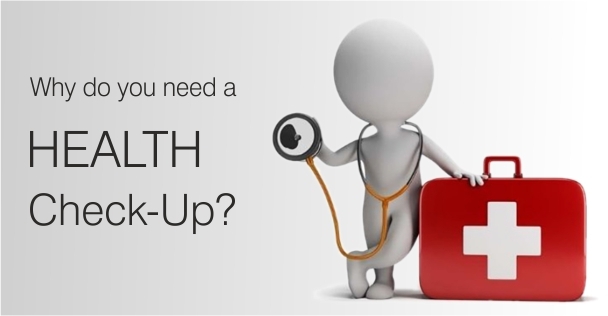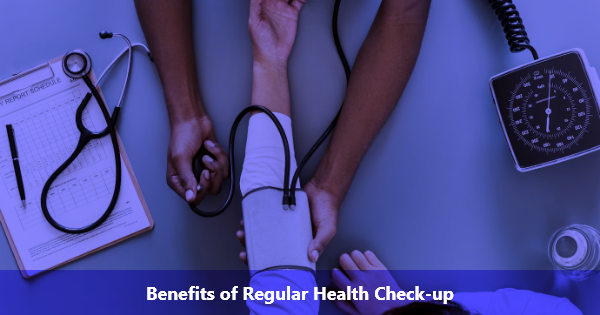Contents
Overview
Are you still seeing your doctor when you fall sick? Well, that was a generation ago. Changing times call for a modified approach toward one’s health.
It is advised that all adults go for regular health checkups from time to time, even when they are healthy. Increased pollution levels, stress, hectic lifestyle, puts you at risk of developing diseases that can sometimes be life-threatening.
The purpose of regular health checkups is to find health problems early when they’re usually easier to treat. Many diseases are brought on mainly by stress and anxiety, and regular health checkups make it easier to identify stress-related conditions before they become too severe.
Early detection increases the chances of getting the proper treatment quickly, avoiding any complications. Many factors, such as age, health, family history, and lifestyle choices, impact how often health checkups are required.
What are the benefits of regular health checkups?
There is not one but innumerable benefits of regular health checkups:
- It puts you at a lesser risk of getting sick.
- Timely detection of potentially life-threatening health conditions or diseases
- Increases chances for right treatment and cure
- Timely detection limits the risk of complications.
- Increases lifespan
- Reduces healthcare costs over time
- Reminds you of the importance of a healthy lifestyle.
What to expect at a health checkup?
Here are some things you can expect at a health check-up:
- Clinical history: The doctor will regularly update your medical record such as cholesterol levels, blood pressure, BMI, immunizations, etc. for future reference at each health check-up.
- Family history of diseases: The doctor will inquire about the diseases that are hereditary in your family.
- Past medical history: The doctor will review all past medications and medical procedures such as surgeries.
- Lifestyle information such as working style, living conditions, work-life balance.
- Habits such as the use of recreational drugs, smoking, sexual habits.
- Normal body function information such as sleeping, bowel movements, hearing, vision, etc.
What are the tests covered in a regular health checkup?
You must go to an accredited laboratory with the tools to carry out these diagnostic tests. Some of the tests that make up a regular health checkup are:
- General physical exam including weight, height, blood pressure, pulse rate, etc.
- Blood tests help in determining infections, anaemia, or the onset of other diseases.
- Lipid Profile helps in assessing cardiovascular risk.
- Liver Function Test to assess the functioning of the liver or diagnose liver diseases.
- Kidney Function Test to evaluate the proper functioning of kidneys.
- Blood sugar measures blood glucose levels to identify diabetes or pre-diabetes
- Chest x-ray helps in assessing the chest and the organs located in the area.
- ECG helps in determining the heart rate and uniformity of heartbeat.
- Ultrasonography helps assess the structures in the abdomen such as the spleen, gallbladder, liver, pancreas, and kidneys.
- Urine examination helps in the general assessment of health in terms of systemic or metabolic diseases.
What are the tests for health checkup of the heart?
The various noninvasive tests your doctor may order to check your heart health are:
- Blood pressure measurement
- Blood tests to check cholesterol levels and blood triglycerides, among other things.
- Electrocardiogram (ECG) – records your heart’s electrical activity and provides information about your heart rate and rhythm.
- Echocardiography helps to monitor the functioning of the heart and its valves.
What are the tests for health checkups of the Eyes?
Serious eye conditions such as glaucoma, cataracts, diabetic retinopathy, and macular degeneration are more common with age. People older than 65 years should have an annual eye examination. More frequent testing may be recommended for those with certain risk factors, such as:
- A family history of eye disease
- A personal history of eye disease or injury
- Certain medical conditions such as high blood pressure or diabetes
Health checkup tests for seniors
With age, the need for regular medical testing usually increases. The doctor may recommend below based on medical history and risk factors:
- A physical exam to check and record weight, height, and body mass index (BMI).
- Blood pressure monitoring
- Blood tests for lipids
- Diabetes screening
- Lung cancer screening
- Osteoporosis screening
- Abdominal aortic aneurysm screening
- A dental exam every year
- An eye test is mainly for people with vision problems or risk for glaucoma.
- A hearing test is primarily for people with symptoms of hearing loss.
Disclaimer:
This blog is for informational purposes only and should not be construed as advice or as a substitute for consulting a physician. It is not a substitute for medical advice or treatment from a healthcare professional.
Sources:





